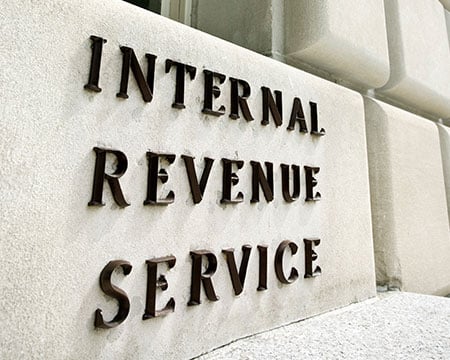Key Takeaways
- Designed to enable taxpayers who regret making shaky claims to avoid penalties.
- Requires repayment of 80% of refund.
- No penalties or interest on repayments made by March 22, 2024.
The IRS has announced its long-awaited "Voluntary Disclosure Program" for taxpayers wanting to return employer retention credits. The program allows taxpayers who feel they taken the credits erroneously to repay 80% of the credit without interest or penalties. The program runs through March 22, 2024.
From the IRS press release:
As part of an ongoing initiative aimed at combating dubious Employee Retention Credit (ERC) claims, the Internal Revenue Service today launched a new Voluntary Disclosure Program to help businesses who want to pay back the money they received after filing ERC claims in error.
The new disclosure program, which has been in the works for several months, is part of a larger effort at the IRS to stop aggressive marketing around ERC that misled some employers into filing claims. The special disclosure program runs through March 22, 2024, and the IRS added provisions allowing repayment of 80% of the claim received.
The IRS also continues to urge employers with pending ERC claims to consider a separate withdrawal program that allows them to remove a pending ERC claim with no interest or penalty. The IRS has already received more than $100 million in withdrawals as the agency continues intensifying audits and criminal investigation work in this area.
The press release explains the repayment process:
Interested employers must apply to the ERC Voluntary Disclosure Program by March 22, 2024. Those that the IRS accepts into the program will need to repay only 80% of the credit they received. If the IRS paid interest on the employer's ERC refund claim, the employer doesn't need to repay that interest. Employers who are unable to repay the required 80% of the credit may be considered for an installment agreement on a case-by-case basis, pending submission and review of a Form 433-B, Collection Information Statement for Businesses, available on IRS.gov, and all required supporting documentation.
The IRS will not charge program participants interest or penalties on any credits they repay. However, if the employer is unable to repay the required 80% of the credit at the time of signing their closing agreement, then the employer will be required to pay penalties and interest in connection with entering into an installment agreement.
The IRS selected an 80% repayment because many of the ERC promoters charged a percentage fee that they collected at the time of payment or in advance of the payment, and the recipients never received the full amount.
More details may be found in IRS Announcement 2024-03.
Tonya Rule, an Eide Bailly partner who has shepherded many successful ERC claims through the process, wonders whether the program will be effective in reaching taxpayers who have made bad ERC claims. "They think they qualify because the ERC mill told them they qualify, so why would they pay it back?"
We're Here to Help



